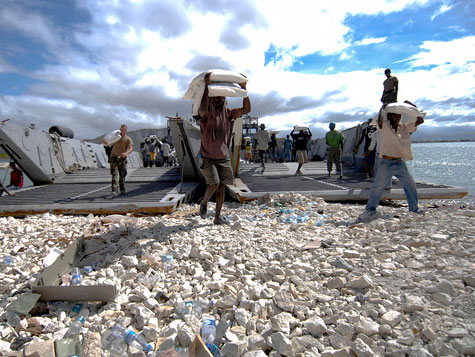
This article was originally published by the Global Observatory (IPI) on 4 May 2016.
The international humanitarian system is suffering from a crisis of legitimacy, not only because it lacks the capacity and funds to respond to the volume and complexity of current humanitarian needs, but also because the “authorizing environment” has changed: the system no longer represents the interests of today’s humanitarians or is able to instill trust in aid recipients.
Take places like Syria, where approximately 700 local organizations and diaspora groups have filled the void left by the absence of international relief organizations, which have been largely unable to operate in besieged areas since the conflict began. In Yemen, suspicion and mistrust by governments, armed groups, and communities themselves compel international aid organizations to work almost exclusively through local partners. According to surveys done by the accountability project Ground Truth, only one in six of those affected by the 2015 earthquake in Nepal and one in 16 during the early response to the recent Ebola outbreak in West Africa felt that their needs were being met by aid organizations.
